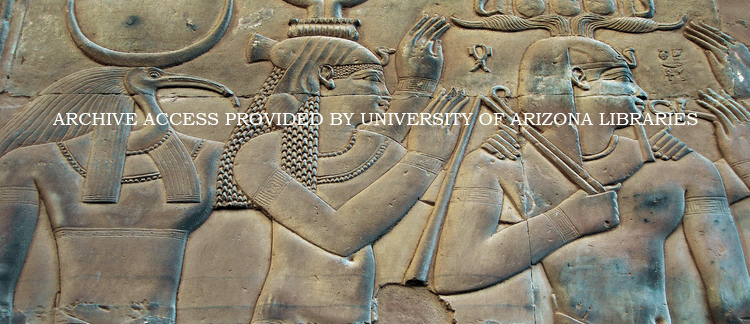Abstract
Throughout the Ptolemaic era, the Greek rulers of Egypt had to tackle complex issues pertaining to the nature of their dominion over peoples who were in many ways culturally, socially, and politically distinct. This paper examines how, despite these differences, Ptolemy II Philadelphus found a way to connect with both the Greek and Egyptian segments of his population by identifying himself with the god Dionysus. Although a Greek deity, Dionysus possessed specific associations that would have resonated with elements of Egyptian religion and culture. These connotations would have promoted the perception of Philadelphus as a legitimate and benevolent ruler capable of transcending cultural boundaries. The grand procession in the Ptolemaia festival has been characterized by Dorothy J. Thompson as a form of propaganda for the ruling family. Similarly, the various forms of evidence presented in this paper suggest that Dionysus would have been a convenient political vehicle in this syncretic environment. Such an approach on the part of Philadelphus was highly innovative and effective, and influenced the political identity assumed by later Ptolemaic rulers.
How to Cite
Goyette, M., (2010) “Ptolemy II Philadelphus and the Dionysiac Model of Political Authority”, Journal of Ancient Egyptian Interconnections 2(1), 1-13. doi: https://doi.org/10.2458/azu_jaei_v02i1_goyette
3444
Views
3432
Downloads
